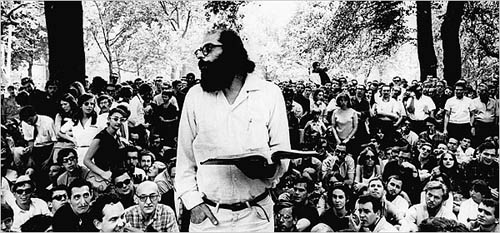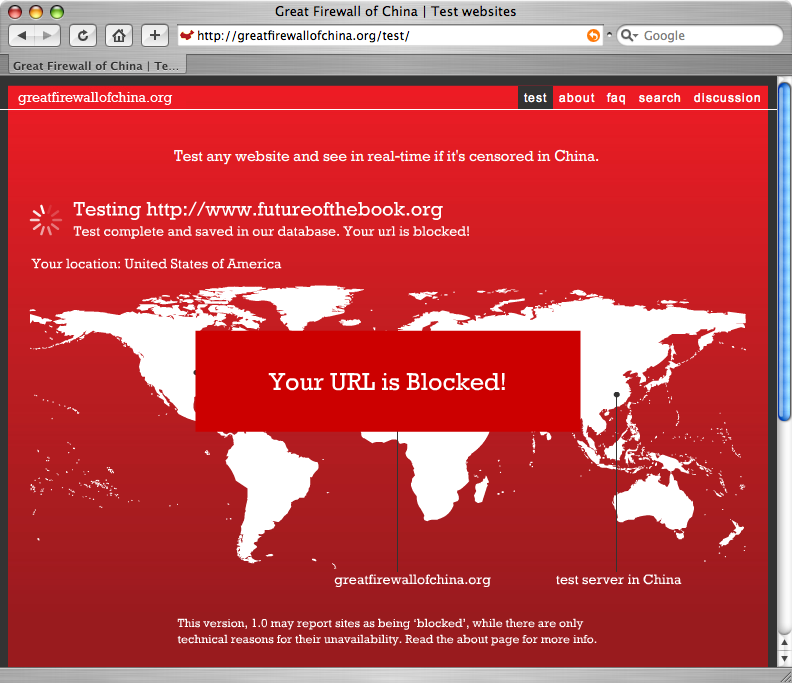
Allen Ginsberg reading “Howl” in Washington Square in 1966. (Associated Press)
Yesterday marked the 50th anniversary of the famous court ruling in defense of Allen Ginsberg’s “Howl” against charges of obscenity, citing the poem’s “redeeming social importance.” The Times reports how New York radio station WBAI had the idea of airing a recording of Ginsberg reading his poem to commemorate defense, but was ultimately dissuaded by its lawyers, who feared that an increasingly zealous FCC could fine the station out of existence. The poem did end up airing freely online on pacifica.org, where where the FCC stormtroopers have no jurisdiction. There, under the banner “Howl Against Censorship,” you can still hear it with comments by Lawrence Ferlingetti and other sages of the Beat era (there’s also a link to a full online text of the poem). Worth checking out.
What’s funny and more than a little sad about this story is its utter banality. This isn’t a drag-out battle against the thought police – ?it’s censorship drained of meaning. Because Janet Jackson accidentally let a boob fly at the 2004 Super Bowl, and a few others’ assorted lewd utterances on live TV, the humorless puritans at the FCC have knuckled down into zero tolerance mode. A few incidental curse words, not the actual substance of “Howl,” seem to be at issue here, and that’s what’s truly worrisome.
In ’57, there seemed to be something real at stake concerning free speech: not in the surface indecency of Ginsberg’s language, but in the heart of his protest and lament at the whole of American civilization. The Times quotes Ferlingetti:
Mr. Ferlinghetti, 88, who owns the landmark City Lights bookstore in San Francisco, said that when “Howl” was labeled obscene, first by United States Customs agents and then by the San Francisco police, it “wasn’t really the four-letter words.” He added, “It was that it was a direct attack on American society and the American way of life.”
If anything, this latter-day episode demonstrates how our culture is on auto pilot, that we’ve become so perfunctorily litigious in the mediation of language and symbols, that the masterpiece “Howl” might as well have been a recipe for pancakes or a wall message from MySpace. The poem’s gorgeous threat has been dulled by a larger and pervading numbness. Kudos, of course, to Pacifica for trying valiantly to break through it, but even if the poem had transmitted uncensored on FM radio, or had it been some other work, ten times as damning but without a trace of profanity, would anyone have even been awake enough to receive it?


